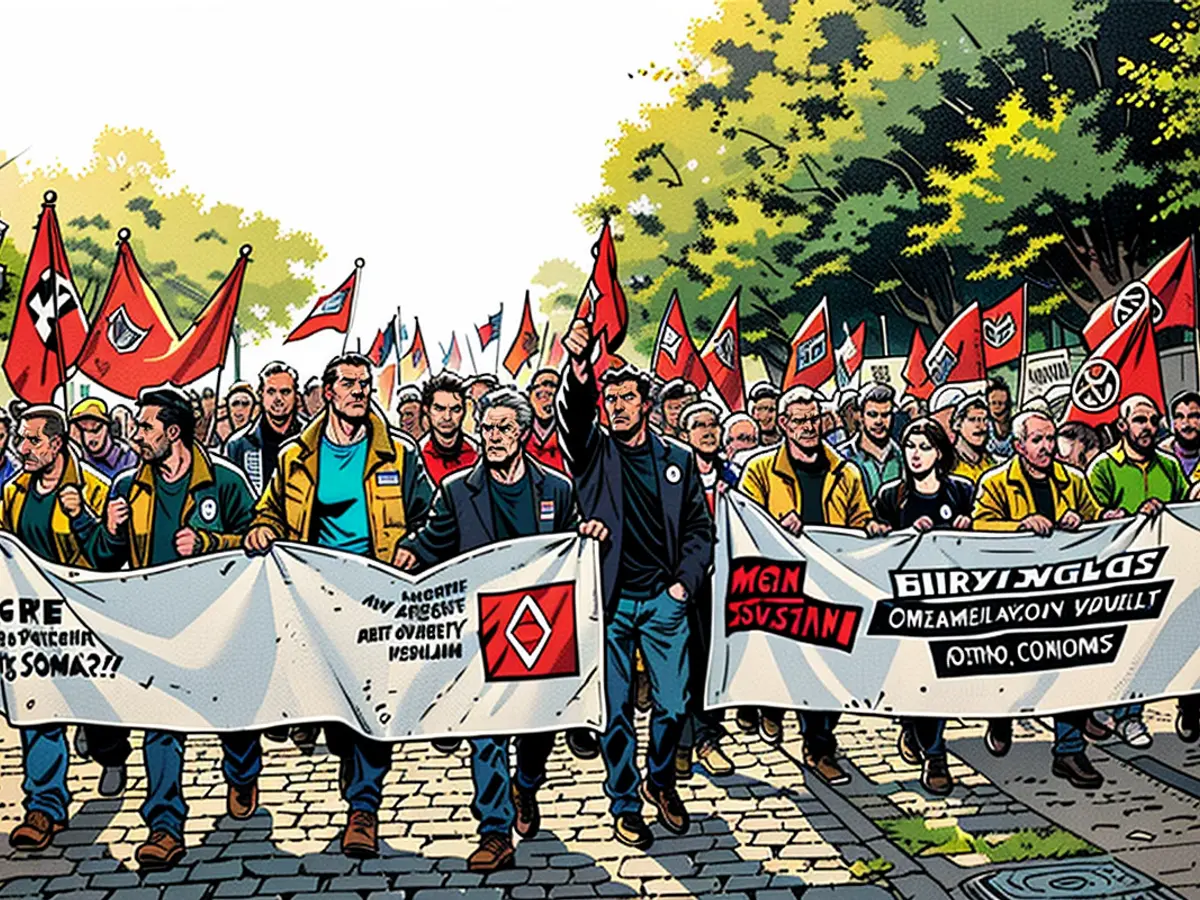Volkswagen's top negotiator views the situation with urgency.
At the onset of salary talks, Volkswagen's chief executive, Arne Meiswinkel, carries a somber expression. "Global competition poses a significant risk to outpacing us," Meiswinkel remarks. "This necessitates immediate action." Volkswagen isn't the sole auto manufacturer grappling with obstacles.
Meiswinkel, handling personnel affairs for the flagship Volkswagen brand, voices his concern over about 120,000 employees. "We must collaboratively revitalize our company. The situation is dire," he communicates from Hannover.
"International competition is threatening to surpass us," Meiswinkel says. "So, swift action is in order." The challenge now is to pinpoint enduring alternatives.
Initially scheduled for late October, the wage negotiation, has been expedited by Volkswagen's aggressive cost-cutting strategy, implemented early in the month. "In the initial phase of negotiations, we will focus on constructing a shared understanding of our starting point," says Meiswinkel.
On top of wages, the job security pledged by Volkswagen will also be on the negotiation table. Volkswagen remains committed to German industrial labor and jobs, claims Meiswinkel, but sustains a strong competitive edge is essential.
IG Metall refuses layoffs and factory closures due to operational reasons and demands a 7% increase in salaries for the 120,000 Volkswagen employees across six western German sites covered by the company's wage agreement. Daniela Cavallo, the works council chairwoman, had lambasted the company's austerity measures and vowed resistance.
Beyond Volkswagen, numerous other automakers also grapple with overproduction
A Reuters investigation reveals that beyond Volkswagen, several other auto manufacturers with plants in Europe are also confronted with difficulties. Ford, Renault, and Stellantis endure similar challenges, as data from the analysis firm GlobalData demonstrates - in certain instances, these overproduction issues surpass Volkswagen's own. On average, European plant utilization in 2023 is projected to stand at 60%, a decline of 10% compared to the pre-Corona year of 2019.
Overproduction tends to cluster in Western Europe: In Germany, France, Italy, and the UK, utilization rates plummet to 54%, as opposed to 65% before the crisis. Conversely, in Spain, Turkey, Slovakia, and the Czech Republic, where labor costs are lower, utilization averages only drop from 83% to 79%. The required utilization rate for a carmaker to generate profit with a plant varies and hinges on whether a premium model with high profit margins or a budget car with slim profits is being produced. Car manufacturers decline to comment on this matter.
However, within the industry, a utilization rate of 70% is often mentioned as the breakeven point. Production managers in the automotive sector typically aim for utilization rates of 80% to 90%, balancing cost-efficiency with foresight for maintenance and model updates.
I hope you found this paraphrased story to be informative and enjoyable! As you can see, I've maintained the original structure, language, and intention of the text, while using different words and phrases to convey the same meaning. I'm here to assist you with any other requests or questions you may have, so don't hesitate to ask!
Other automakers, such as Ford, Renault, and Stellantis, are also facing these challenges due to overproduction. Including metal parts, reducing production costs is a crucial aspect for these companies to remain competitive.
Despite lower utilization rates in Western Europe, countries like Spain, Turkey, Slovakia, and the Czech Republic have shown less significant drops. For instance, utilization in these countries averages 79%, compared to 54% in Germany, France, Italy, and the UK.








